
Masaka: The Heartbeat of Uganda's Central Region
Nestled in the lush landscapes of Uganda, Masaka is a captivating blend of tradition and modernity. This vibrant city, located in the central region, is a gateway to the rich cultural heritage and natural beauty that Uganda has to offer. Masaka is known for its friendly locals, bustling markets, and serene environment, making it a perfect destination for those looking to experience the authentic Ugandan lifestyle. Masaka's history is deeply intertwined with the Kingdom of Buganda, and visitors can explore this rich cultural tapestry through various historical sites and local traditions. The city is also a hub for agricultural activities, with expansive banana plantations and coffee farms dotting the landscape. A visit to one of these farms offers a unique insight into the agricultural practices that sustain the local economy. Nature enthusiasts will find plenty to explore in and around Masaka. From the scenic Nabugabo Sand Beach to the impressive Ssezibwa Falls, the region boasts a variety of natural attractions. Wildlife lovers can embark on a safari to nearby national parks or enjoy bird-watching in the lush surroundings. Whether you're seeking adventure or relaxation, Masaka provides a serene escape with plenty of opportunities for exploration and discovery.
Local tips in Masaka
- Visit the local markets early in the morning to experience the freshest produce and vibrant atmosphere.
- Hire a local guide for a tour of the historical sites to gain deeper insights into Masaka's cultural heritage.
- Don't miss the chance to visit a coffee farm and learn about the process from bean to cup.
- Bring binoculars for bird-watching, as the area is home to a diverse range of bird species.
- Try the local delicacies such as matoke (steamed bananas) and fresh tilapia from Lake Victoria.
Masaka: The Heartbeat of Uganda's Central Region
Nestled in the lush landscapes of Uganda, Masaka is a captivating blend of tradition and modernity. This vibrant city, located in the central region, is a gateway to the rich cultural heritage and natural beauty that Uganda has to offer. Masaka is known for its friendly locals, bustling markets, and serene environment, making it a perfect destination for those looking to experience the authentic Ugandan lifestyle. Masaka's history is deeply intertwined with the Kingdom of Buganda, and visitors can explore this rich cultural tapestry through various historical sites and local traditions. The city is also a hub for agricultural activities, with expansive banana plantations and coffee farms dotting the landscape. A visit to one of these farms offers a unique insight into the agricultural practices that sustain the local economy. Nature enthusiasts will find plenty to explore in and around Masaka. From the scenic Nabugabo Sand Beach to the impressive Ssezibwa Falls, the region boasts a variety of natural attractions. Wildlife lovers can embark on a safari to nearby national parks or enjoy bird-watching in the lush surroundings. Whether you're seeking adventure or relaxation, Masaka provides a serene escape with plenty of opportunities for exploration and discovery.
When is the best time to go to Masaka?
Iconic landmarks you can’t miss
Kabaka's Palace
Explore Kabaka's Palace, the iconic heart of the Buganda Kingdom in Kampala, where history, culture, and royal heritage come alive.
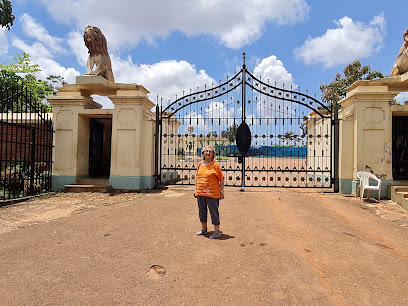
Uganda Equator
Explore the Uganda Equator, a unique landmark where two hemispheres meet, rich in culture, crafts, and local cuisine.
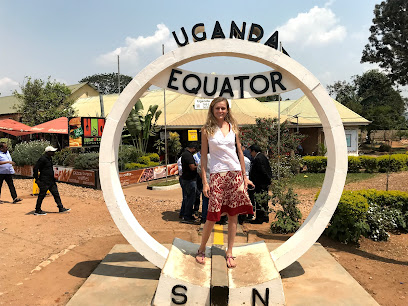
Uganda Martyrs Catholic Shrine Basilica, Namugongo
Experience the profound spirituality and stunning architecture of the Uganda Martyrs Catholic Shrine Basilica in Namugongo, a must-visit pilgrimage site.

Igongo Country Hotel and Cultural Centre
Discover Ugandan heritage and hospitality at Igongo Country Hotel and Cultural Centre, where comfort meets culture in the heart of Mbarara.

Shoebill Tours Mabamba Swamp
Explore the mesmerizing Mabamba Swamp, home to the elusive shoebill and a plethora of bird species, offering an unforgettable nature experience in Uganda.
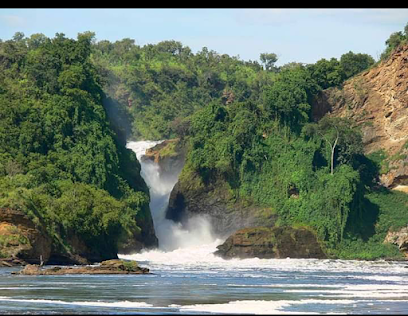
Lake Mburo National Park
Discover the enchanting landscapes and diverse wildlife at Lake Mburo National Park, Uganda's hidden gem for nature lovers and adventure seekers.
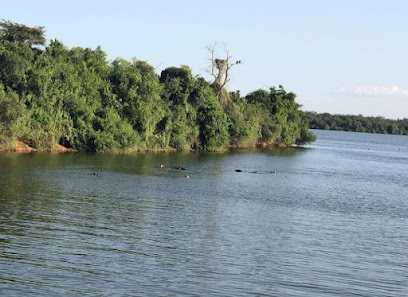
Hotel Brovad
Experience comfort and convenience at Hotel Brovad in Masaka, Uganda, offering modern amenities and a strategic location for travelers and explorers alike.

Maria flo hotel
Experience comfort and hospitality at Maria Flo Hotel, a perfect retreat for travelers in the heart of Masaka, Uganda.

Zebra Hotel
Discover comfort and convenience at Zebra Hotel, your ideal base for exploring the enchanting city of Masaka, Uganda.
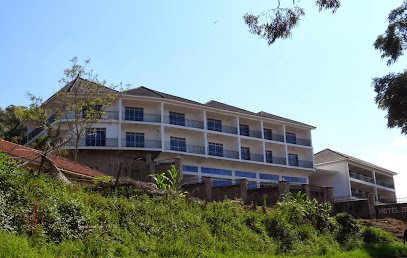
Independence Monument
Explore the Independence Monument in Kampala, a striking symbol of Uganda's freedom and a must-visit landmark for every traveler.
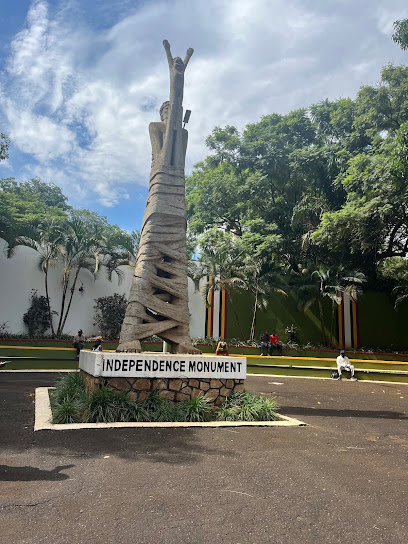
Maple Leaf Hotel
Experience the warmth of Ugandan hospitality at Maple Leaf Hotel in Masaka, your ideal base for adventure and relaxation.
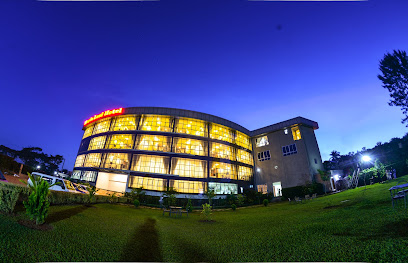
Garden Courts Hotel Masaka Ltd
Discover comfort and tranquility at Garden Courts Hotel Masaka, your perfect retreat in the heart of Uganda, surrounded by vibrant culture and stunning landscapes.
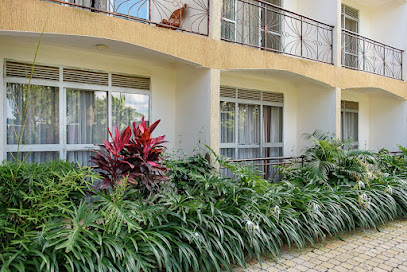
Plot 99 - Coffeehouse & Lounge
Discover the vibrant atmosphere and exquisite flavors at Plot 99, a must-visit coffeehouse and lounge in Masaka, Uganda.
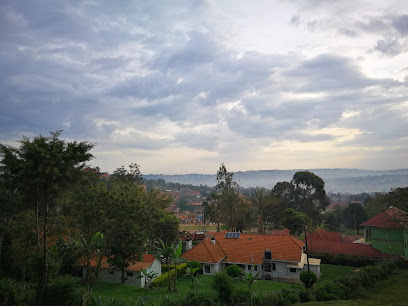
Ambiance - Masaka
Discover the vibrant nightlife of Masaka at Ambiance, the ultimate disco club for an unforgettable experience filled with music, dance, and local culture.
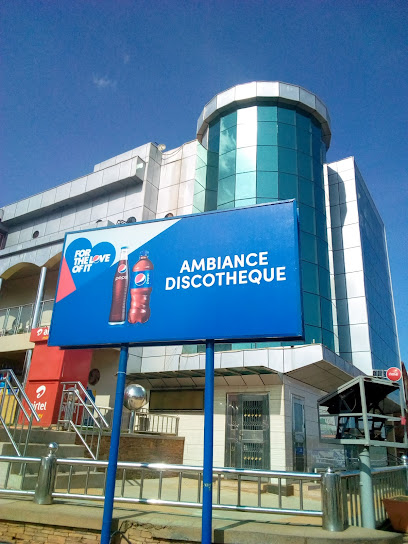
Elite Backpackers Services Masaka
Discover the charm of Masaka at Elite Backpackers Services, where comfort meets adventure in the heart of Uganda.
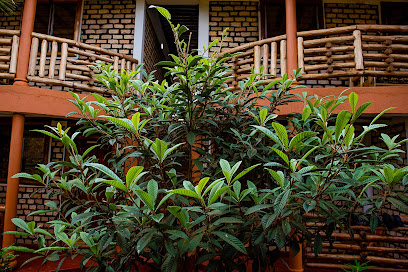
Unmissable attractions to see
Uganda Equator
Experience the geographical wonder of the Uganda Equator, a vibrant hub of culture, crafts, and local cuisine in the heart of Uganda.
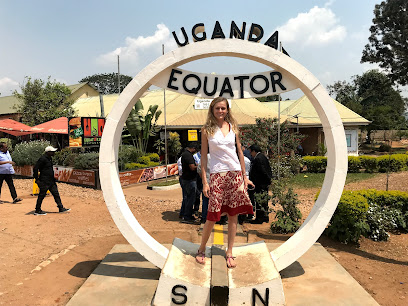
Lake Mburo National Park
Explore Lake Mburo National Park, Uganda's hidden gem, where wildlife encounters and breathtaking landscapes await adventurous travelers.
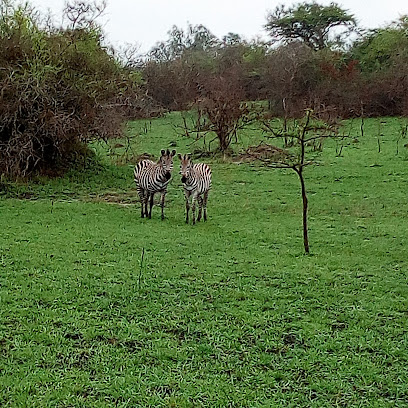
Greenville Country Resort Beach
Discover the tranquility of Greenville Country Resort Beach in Masaka, where nature meets adventure for an unforgettable getaway.
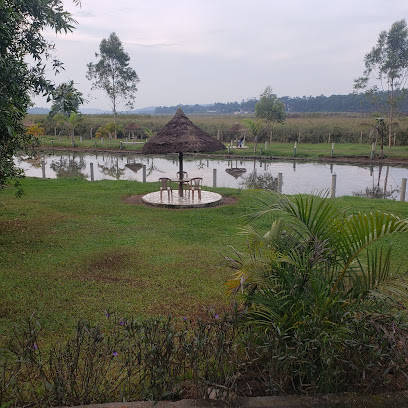
Mpanga Nature Center
Explore the breathtaking beauty and tranquility of Mpanga Nature Center, a premier tourist attraction in Lwanga, Uganda, perfect for nature lovers.
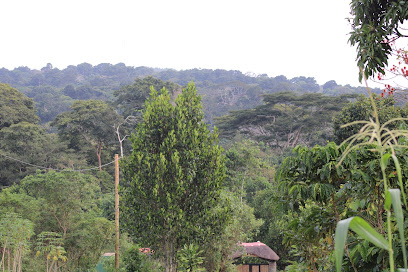
Entanda Culture Center
Explore the Entanda Culture Center in Mityana for an authentic Ugandan experience filled with culture, art, and culinary delights.
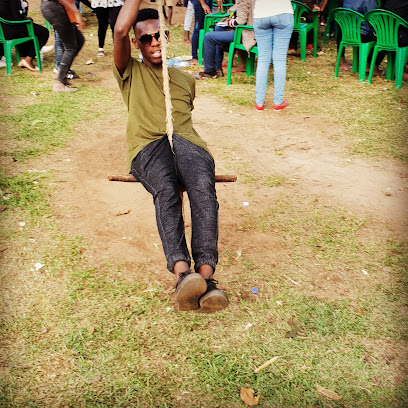
Camp Ndegeya
Discover the tranquil beauty of Camp Ndegeya, a perfect retreat center in Uganda for relaxation and adventure amidst nature.
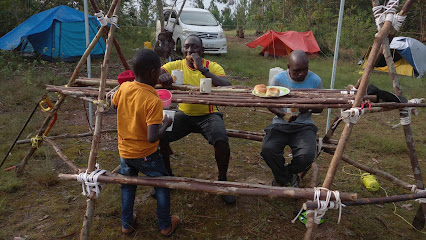
Lovers' Park
Explore Lovers' Park in Masaka – a lush oasis perfect for relaxation, picnics, and nature walks in the heart of Uganda.
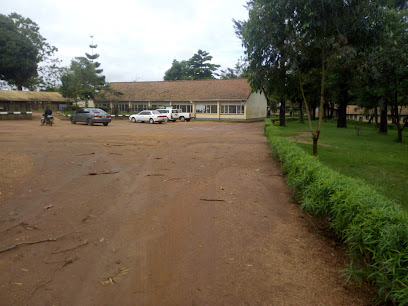
خط الاستواء في اوغندا
Experience the unique charm of the Equator in Uganda, a captivating spot where two hemispheres meet in stunning natural beauty.
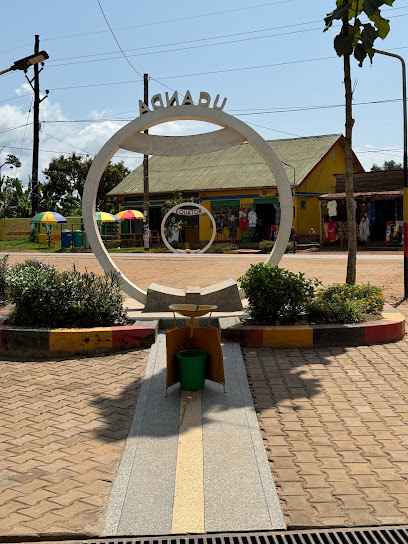
Uganda Colobus Tours
Experience the beauty of Uganda's wildlife and landscapes at Uganda Colobus Tours near Lake Nabugabo, a perfect destination for nature lovers.
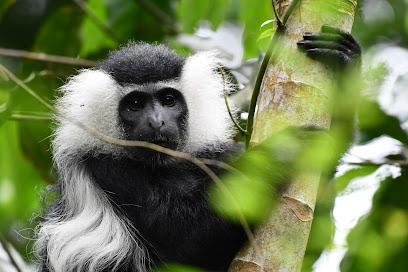
John Speke's Fort
Explore the historic John Speke's Fort at Lutoboka Bay, a unique blend of rich heritage and breathtaking natural beauty in Uganda.
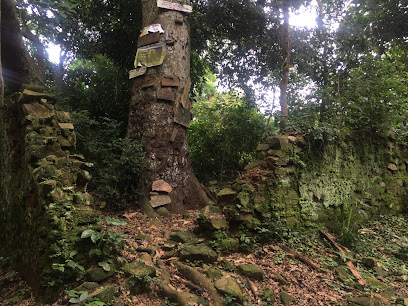
LASTON GARDENS KIJJABWEMI
Discover tranquility and natural beauty at Laston Gardens Kijjabwemi in Masaka, a perfect retreat for relaxation and family fun.
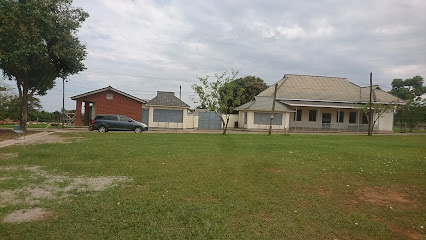
ROCKY SPOT FOREST PARK - LWENGO, UGANDA
Explore the natural beauty and diverse activities at Rocky Spot Forest Park in Lwengo, Uganda, perfect for adventure and relaxation.
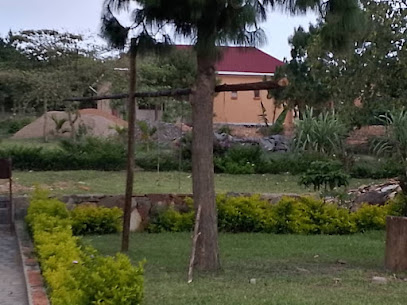
Nampeke
Explore the mystical world of fortune-telling and herbal remedies at Nampeke, a cultural gem in Uganda rich in tradition and spiritual heritage.
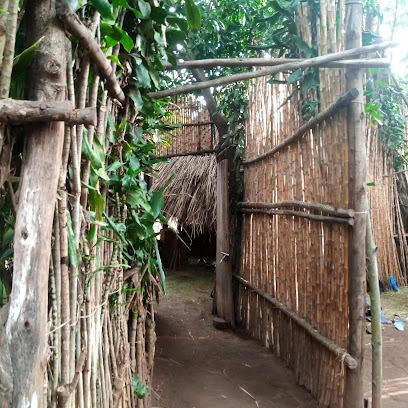
Park
Explore the natural beauty and tranquility of Masaka Park, a perfect escape for relaxation and recreation in the heart of Uganda.
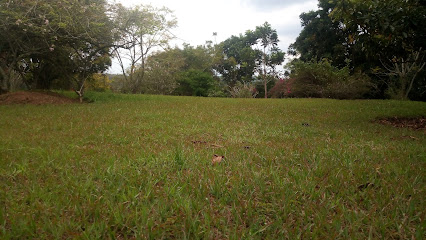
Mugabi Taagi
Explore Mugabi Taagi, a serene garden oasis in Masaka, Uganda, where nature's beauty invites relaxation and reflection.

Essential places to dine
Plot 99 - Coffeehouse & Lounge
Discover tranquility at Plot 99 Coffeehouse & Lounge in Masaka - where every sip tells a story.
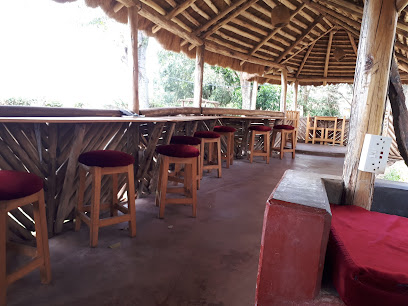
Chomaz Bar
Experience authentic Ugandan barbecue at Chomaz Bar in Masaka—where flavor meets vibrant culture amidst lively music.
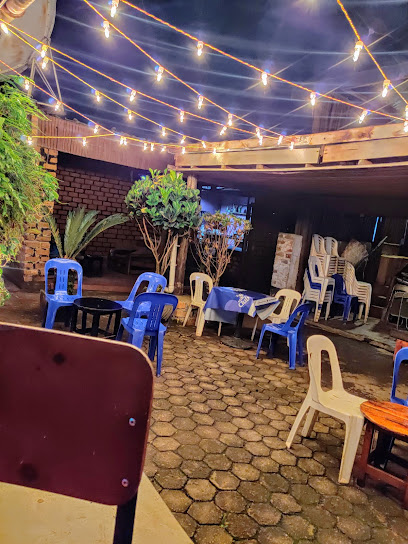
Villa Lounge
Discover the vibrant flavors of Uganda at Villa Lounge in Masaka – where culinary delights meet lively entertainment.
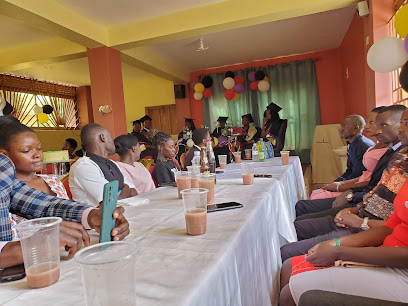
Cornerspot View Bar And Pork Joint
Discover authentic Ugandan flavors at Cornerspot View Bar And Pork Joint - where delicious barbecue meets vibrant atmosphere in Masaka.

Valley Cave Restaurant
Experience authentic Ugandan cuisine at Valley Cave Restaurant – where flavor meets culture in every bite.
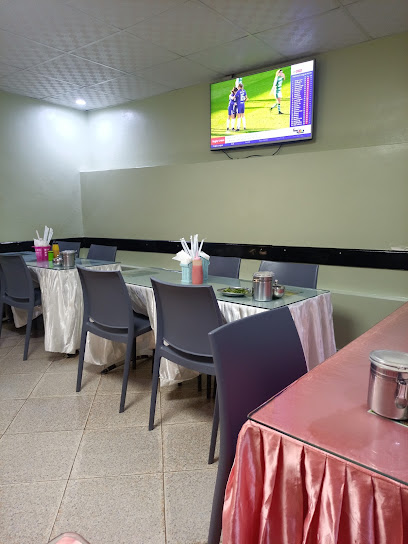
Havana Inn Nnyendo
Experience authentic Ugandan flavors at Havana Inn Nnyendo - where every meal is grilled to perfection amidst warm hospitality.
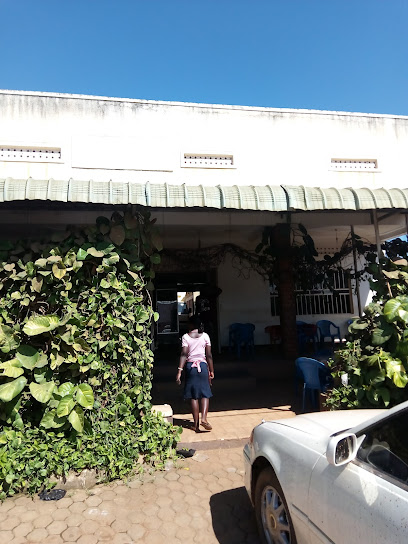
Tabula Byansi Restaurant
Discover authentic Ugandan cuisine at Tabula Byansi Restaurant in Masaka - where flavor meets tradition in every dish.
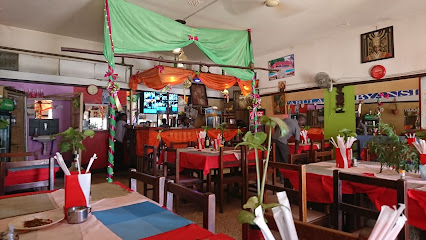
Kevin Restaurant Masaka
Experience the authentic tastes of Uganda at Kevin Restaurant Masaka - where tradition meets flavor in every bite.
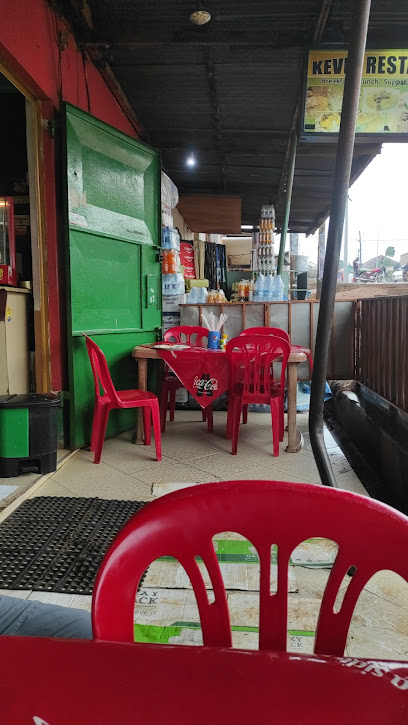
Mirembe Restaurant Masaka, Kampala Road, Masaka
Experience authentic Ugandan cuisine at Mirembe Restaurant in Masaka - a culinary delight filled with local flavors and warm hospitality.
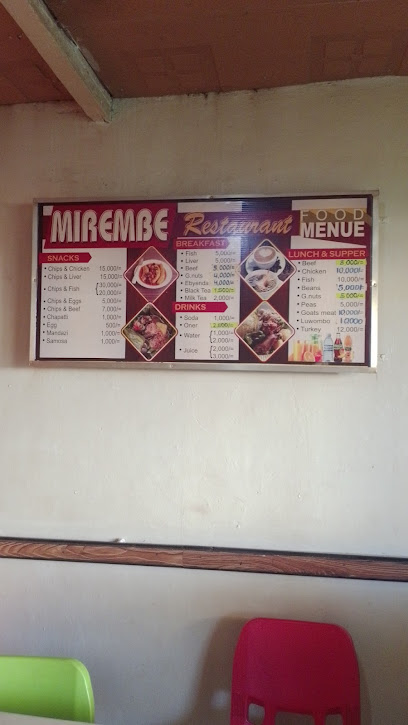
Pearl Highway Pork Joint
Discover authentic Ugandan flavors at Pearl Highway Pork Joint in Masaka - where delicious fast food meets local culinary tradition.
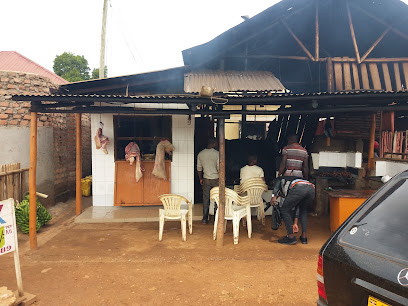
By pass restaurant.
Experience authentic Ugandan cuisine at By Pass Restaurant on the Masaka-Mbarara road – where flavor meets hospitality.
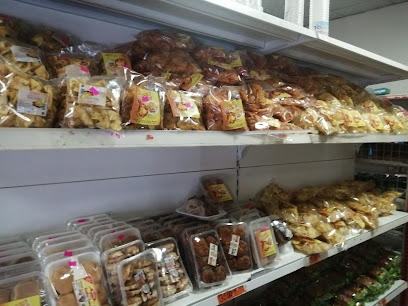
Bar & Restaurant Masaka Sports Club
Discover delicious local and international cuisine at Bar & Restaurant Masaka Sports Club – a vibrant hub for food lovers in Masaka.
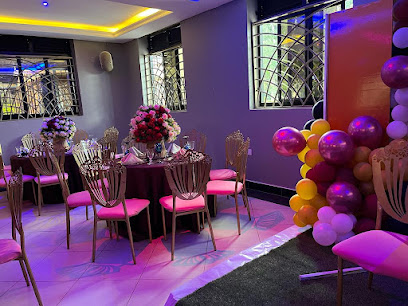
Cafe B4 Masaka
Discover the flavors of Uganda at Café B4 Masaka, where local cuisine meets warm hospitality in a cozy atmosphere.
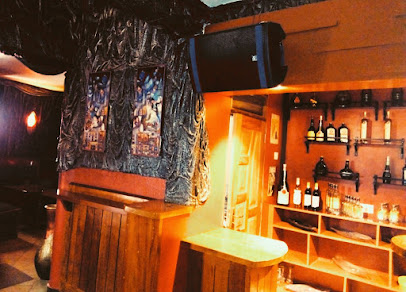
Bananah Chick
Experience authentic Ugandan flavors at Bananah Chick, a vibrant restaurant in Masaka known for its delicious dishes and warm hospitality.
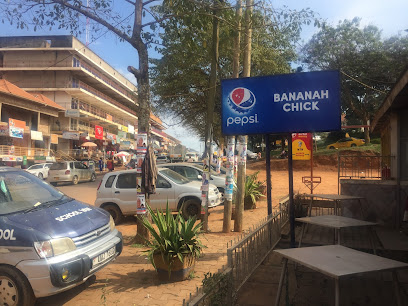
Da' peers' park
Discover the vibrant flavors of Uganda at Da' Peers' Park – where grilling meets local tradition in Masaka's inviting atmosphere.
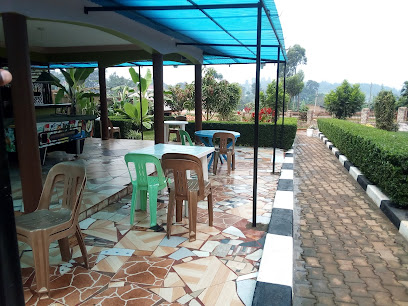
Markets, malls and hidden boutiques
OneStop Shoppers Supermarket.
Discover local flavors and convenience at OneStop Shoppers Supermarket in Masaka, your essential shopping destination for groceries and car rentals.
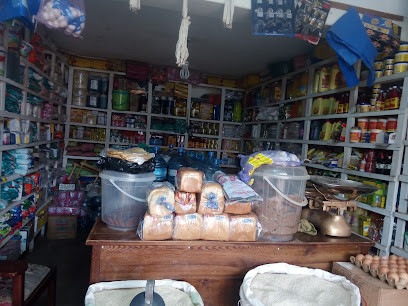
J&J Baby Collection Masaka
Discover stylish and affordable children's clothing at J&J Baby Collection in Masaka, where quality meets playful fashion for your little ones.
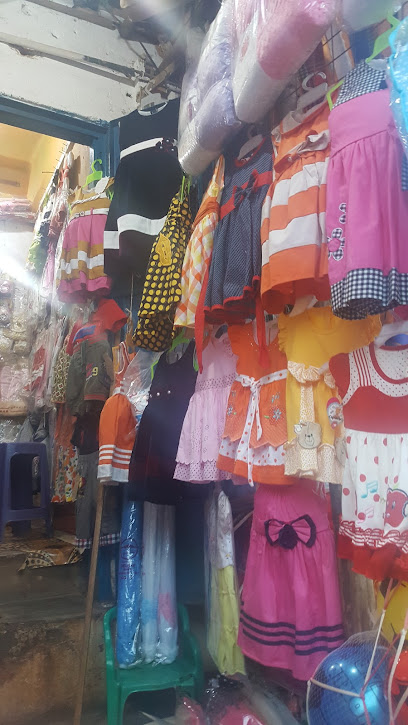
KP&C UNIQUE APPAREL AND BRIDALS
Explore KP&C Unique Apparel and Bridals in Masaka - your destination for stylish clothing and exquisite bridal wear!
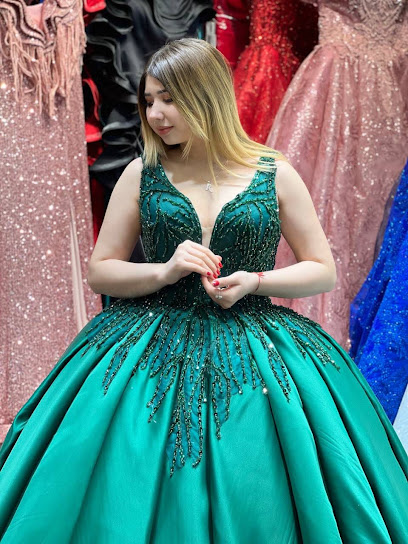
FROST FASHIONS MASAKA
Discover unique clothing styles at Frost Fashions Masaka, a vibrant clothing store showcasing local fashion and accessories.
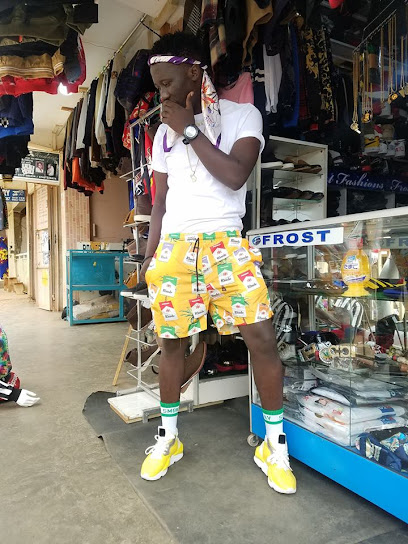
MASTER KIGANDA MASAKA
Discover unique crafts and local treasures at MASTER KIGANDA MASAKA, the ultimate shopping destination in Masaka, Uganda.
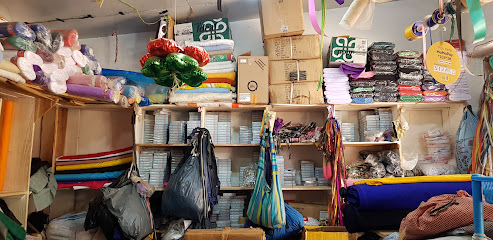
Top in Fashions
Explore the latest fashion trends at Top in Fashions, a vibrant store in Masaka, Uganda, offering unique styles and quality apparel for every taste.

Ugachick Masaka Outlet
Shop the latest trends and discover unique Ugandan crafts at Ugachick Masaka Outlet, a vibrant shopping destination in the heart of Masaka.
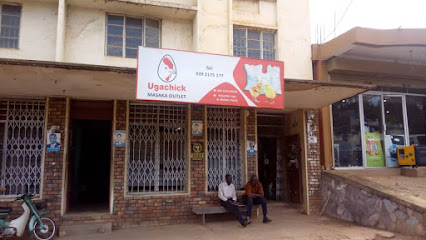
Kitengeesa masaka Uganda
Discover Kitengeesa in Masaka, Uganda, where trading cards come alive in a vibrant community setting, perfect for collectors and tourists alike.

Byaru Fashion World Masaka
Explore the vibrant fashion scene at Byaru Fashion World Masaka, where unique styles meet traditional Ugandan attire for a memorable shopping experience.
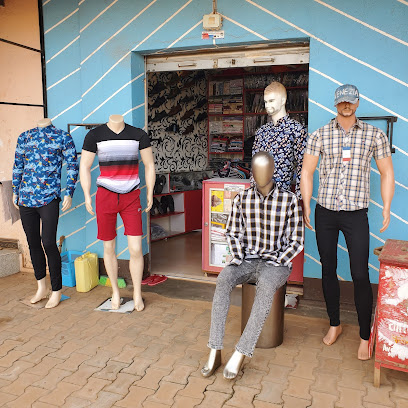
Eve Fashions
Discover stylish apparel and unique fashion pieces at Eve Fashions in Masaka, the ultimate clothing store for all your wardrobe needs.

boymart classic shoe centre
Explore the finest footwear at Boymart Classic Shoe Centre in Masaka, where style meets quality for every occasion.
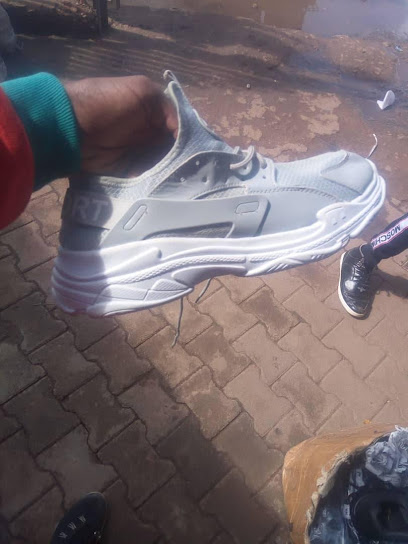
Ward Stores
Explore the vibrant local culture at Ward Stores in Masaka, Uganda, where unique crafts and warm hospitality await every visitor.
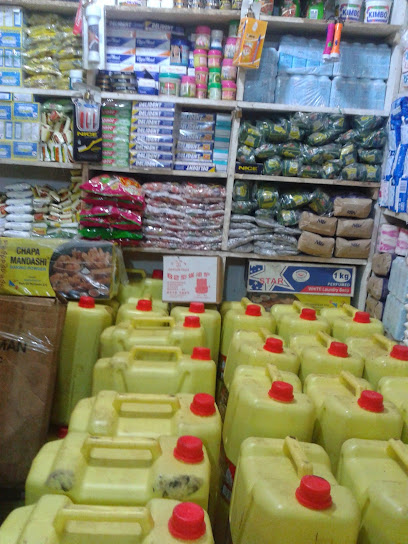
Mirembe Traders Masaka
Explore Mirembe Traders Masaka for unique home goods that embody the spirit of Uganda, perfect for souvenirs and local culture.

KITOMA TRADERS
Explore Kitoma Traders in Masaka for unique home goods and authentic Ugandan crafts, a perfect blend of culture and creativity.

Fred Fashions
Explore the latest trends in youth fashion at Fred Fashions, a vibrant clothing store in Masaka, Uganda, perfect for stylish souvenirs.
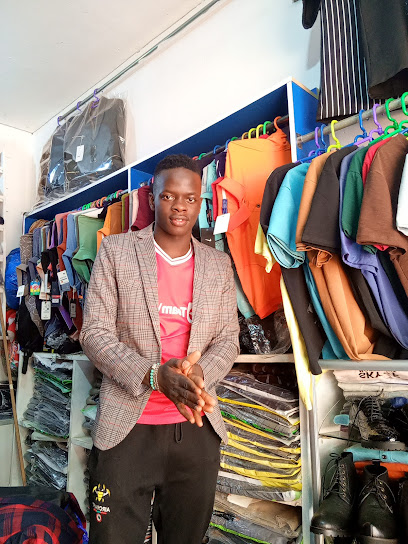
Essential bars & hidden hideouts
Cornerspot View Bar And Pork Joint
Experience the vibrant atmosphere and delicious barbecue at Cornerspot View Bar And Pork Joint, a culinary gem on the Masaka-Mbarara By-pass.

Bar & Restaurant Masaka Sports Club
Discover the vibrant flavors of Uganda at Masaka Sports Club, a premier destination for grilled delights and lively atmosphere.
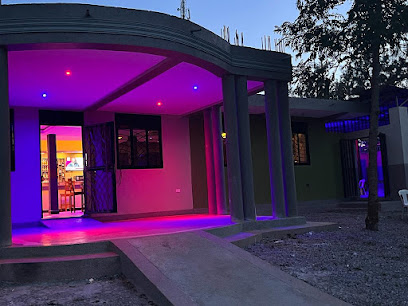
The Vintage Bar and Auto Spa
Experience the perfect fusion of relaxation and rejuvenation at The Vintage Bar and Auto Spa in Masaka, where vintage charm meets modern convenience.
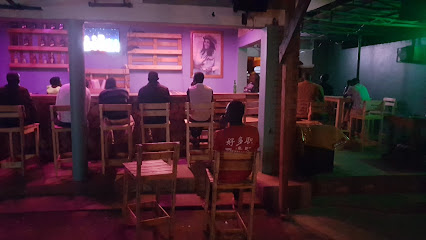
Jakanana Pub
Discover the lively spirit of Masaka at Jakanana Pub, a must-visit bar for locals and tourists alike, offering a unique blend of culture and entertainment.
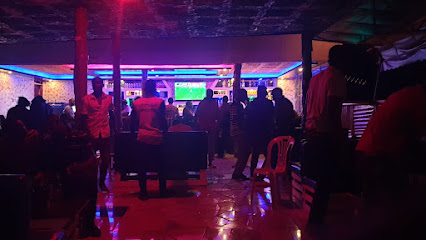
Victory Pub Ssaza
Discover the vibrant atmosphere of Victory Pub Ssaza in Masaka, where local flavors meet lively entertainment along the Mbarara-Kampala highway.
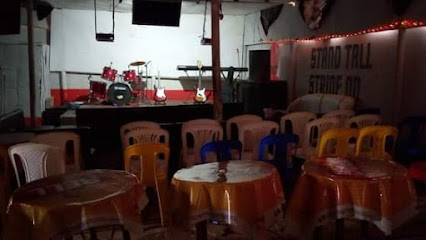
Caesar Garden
Discover Caesar Garden, a serene bar in Masaka offering stunning views, refreshing drinks, and a cool, inviting atmosphere for all visitors.
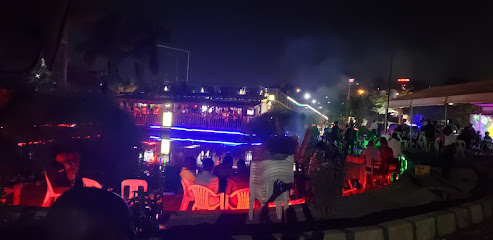
Diplomatic Bar And Pork Joint
Discover the lively Diplomatic Bar And Pork Joint in Masaka, where delicious local pork dishes and vibrant nightlife create an unforgettable experience.
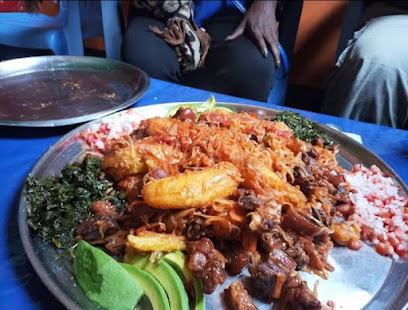
ROZAK PUB
Discover authentic Ugandan flavors at Rozak Pub, a charming grill in Masaka perfect for unwinding with delicious food and vibrant local culture.
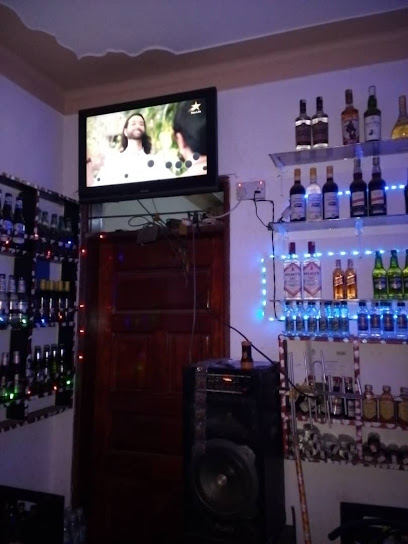
Muwonge's Pork Joint & Bar
Discover the vibrant atmosphere and authentic flavors at Muwonge's Pork Joint & Bar, a culinary hotspot in Masaka offering the best of Ugandan cuisine.

Bettys Pub
Discover the lively atmosphere and local flavors at Bettys Pub in Masaka, the perfect spot for tourists to unwind and enjoy authentic Ugandan nightlife.

skyline pub
Experience the lively atmosphere of Skyline Pub in Masaka, where locals and tourists gather for great drinks and unforgettable moments.

Soberz Lounge
Experience the vibrant nightlife of Masaka at Soberz Lounge, where local culture meets refreshing drinks in a lively atmosphere.

NEHINDA CITY BAR AND ACCOMMODATION MASAKA
Discover the lively experience at Nehinda City Bar, where great drinks, local culture, and friendly faces come together in Masaka.
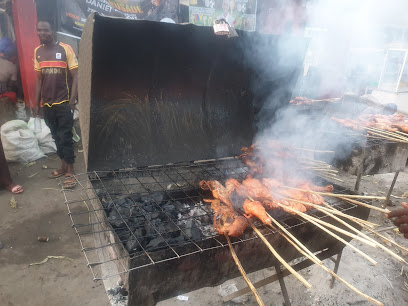
Ronell
Experience the vibrant nightlife of Masaka at Ronell, where exceptional drinks and lively ambiance await every visitor.

Local Phrases
-
- HelloOli otya
[oh-lee oh-tyah] - GoodbyeBye
[bye] - YesEego
[ee-go] - NoNedda
[neh-dah] - Please/You're welcomeMwebale nyo
[mweh-bah-leh nyoh] - Thank youWebale
[weh-bah-leh] - Excuse me/SorrySsentebe
[sen-teh-beh] - How are you?Oli otya?
[oh-lee oh-tyah?] - Fine. And you?Gyendi. Owekisa?
[gyen-dee. oh-weh-kee-sah?] - Do you speak English?Owulira olungereza?
[oh-woo-lee-rah oh-loon-geh-reh-zah?] - I don't understandSiyina mazima
[see-yee-nah mah-zee-mah]
- HelloOli otya
-
- I'd like to see the menu, pleaseNkwegomba okulabirira menu, mwebare
[n-kweh-gom-bah oh-koo-lah-bee-ree-rah meh-noo, mweh-bah-reh] - I don't eat meatSitegeera ekitiibwa
[see-teh-geh-rah eh-kee-tee-bwah] - Cheers!Tebakuswala
[teh-bah-koo-swah-lah] - I would like to pay, pleaseNkwegomba okulipa, mwebare
[n-kweh-gom-bah oh-koo-lee-pah, mweh-bah-reh]
- I'd like to see the menu, pleaseNkwegomba okulabirira menu, mwebare
-
- Help!Tusabe
[too-sah-beh] - Go away!Genda kuva
[gen-dah koo-vah] - Call the Police!Kubuuta Poliisi!
[koo-boo-tah poh-lee-see!] - Call a doctor!Kubuuta daktari!
[koo-boo-tah dahk-tah-ree!] - I'm lostNjagala
[n-jah-gah-lah] - I'm illNzijukira
[n-zee-joo-kee-rah]
- Help!Tusabe
-
- I'd like to buy...Nkwegomba okunyola...
[n-kweh-gom-bah oh-koo-nyoh-lah...] - I'm just lookingNkikola okutambula
[n-kee-koh-lah oh-koo-tahm-boo-lah] - How much is it?Birungi bino byagala buli?
[bee-roon-gee bee-noh byah-gah-lah boo-lee?] - That's too expensiveKino kikolagana
[kee-noh kee-koh-lah-gah-nah] - Can you lower the price?Owebale okuyimusa obuyinza?
[oh-weh-bah-leh oh-koo-yee-moo-sah oh-boo-yin-zah?]
- I'd like to buy...Nkwegomba okunyola...
-
- What time is it?Ssentebe eyo y'asatu?
[sen-teh-beh eh-yoh yah-sah-too?] - It's one o'clockEyo y'asatu
[eh-yoh yah-sah-too] - Half past (10)Mubeeza mu bbiri
[moo-beh-zah moo bee-ree] - MorningEkiro
[eh-kee-roh] - AfternoonEkiro ky'ensimbi
[eh-kee-roh kyehn-seem-bee] - EveningEkisera
[eh-kee-seh-rah] - YesterdayKino ky'akawungeezi
[kee-noh kyah-kah-woon-geh-zee] - TodayLelo
[leh-loh] - TomorrowOlunaku olulala
[oh-loo-nah-koo oh-loo-lah-lah] - 1Mmoja
[mmoh-jah] - 2Biri
[bee-ree] - 3Bisatu
[bee-sah-too] - 4Bina
[bee-nah] - 5Nnabiri
[nnah-bee-ree] - 6Musanvu
[moo-sahn-voo] - 7Mwenda
[mwehn-dah] - 8Mwenda na biro
[mwehn-dah nah bee-roh] - 9Nnacenda
[nnah-chen-dah] - 10Nnabiri na biro
[nnah-bee-ree nah bee-roh]
- What time is it?Ssentebe eyo y'asatu?
-
- Where's a/the...?Wali a/the...?
[wah-lee a/the...?] - What's the address?Ekiro ky'ekiggya?
[eh-kee-roh kyeh-kee-jah?] - Can you show me (on the map)?Owebale okunyaga (mu mapu)?
[oh-weh-bah-leh oh-koo-nyah-gah (moo mah-poo)?] - When's the next (bus)?Wali omu bwati omulala?
[wah-lee oh-moo bwah-tee oh-moo-lah-lah?] - A ticket (to ....)Kitike (ku ....)
[kee-tee-keh (koo ....)]
- Where's a/the...?Wali a/the...?
History of Masaka
-
Masaka has a rich history that dates back to the pre-colonial era. The region was originally inhabited by the Baganda people, who are part of the larger Bantu ethnic group. The area was known for its fertile land and became an important agricultural hub. The Baganda established a strong kingdom with a complex political structure and deep cultural traditions.
-
During the colonial period, Masaka became an important administrative center under British rule. The town was strategically located on the route between Kampala and the southwestern parts of Uganda, making it a vital link for trade and communication. Infrastructure developments, such as roads and administrative buildings, were established, contributing to the town's growth and modernity.
-
Masaka, like much of Uganda, experienced significant changes after the country gained independence from British rule in 1962. The town played a pivotal role during the political turbulence of the 1970s and 1980s, particularly during the regime of Idi Amin and the subsequent civil wars. Many buildings and infrastructure were damaged during this period, but the resilience of the local population helped in the town's recovery.
-
The late 1980s and 1990s marked a period of reconstruction for Masaka. With efforts from both the government and international aid, the town saw the rebuilding of its infrastructure and public services. Today, Masaka is a bustling urban center known for its vibrant markets, educational institutions, and healthcare facilities. It continues to be an important agricultural and commercial hub in Uganda.
-
Masaka is a melting pot of cultures, predominantly influenced by the Baganda traditions. The town hosts several cultural festivals throughout the year, such as the Buganda Kingdom's Kabaka's Birthday celebrations, which attract visitors from all over the country. Traditional music, dance, and crafts are integral parts of these festivities, showcasing the rich cultural heritage of the region.
-
Masaka boasts several tourist attractions that offer a glimpse into its historical and cultural significance. Notable landmarks include the Nabajjuzi Swamp, a Ramsar site known for its unique biodiversity, and the iconic Kasubi Tombs, which are significant to the Buganda Kingdom. Additionally, the town's vibrant markets, such as Masaka Central Market, provide an authentic experience of local life and commerce.
Masaka Essentials
-
Masaka is located in the central region of Uganda, approximately 130 kilometers southwest of Kampala. The most common way to reach Masaka is by road. You can take a bus or a private taxi from Kampala, which usually takes around 2-3 hours depending on traffic. The buses are generally affordable and depart frequently from various bus terminals in Kampala. Alternatively, you can hire a private car for a more comfortable and flexible journey. There are also domestic flights from Entebbe International Airport to nearby airstrips, although this is less common.
-
Once in Masaka, getting around is relatively easy. Boda-bodas (motorcycle taxis) are a popular and inexpensive mode of transport for short distances. For longer journeys within the town or to nearby attractions, you can use matatus (shared minivans) or hire a private taxi. Car rental services are also available for those who prefer to explore at their own pace. Walking is feasible for short distances within the town center, where many attractions and amenities are located.
-
The official currency of Uganda is the Ugandan Shilling (UGX). While credit cards are accepted in some hotels, restaurants, and major supermarkets, it is advisable to carry cash, especially when visiting smaller establishments or local markets. ATMs are available in Masaka, but it is wise to inform your bank about your travel plans to avoid any issues with card usage. Currency exchange services are also available at banks and authorized forex bureaus.
-
Masaka is generally considered safe for tourists, but it is important to take standard precautions. Avoid walking alone at night and be cautious of your surroundings. Some areas may have higher crime rates, particularly for crimes targeting tourists, such as petty theft and pickpocketing. Areas to be particularly cautious in include the town center at night and isolated spots. Always keep your belongings secure and be wary of unsolicited offers of help.
-
In case of emergency, dial 999 for police assistance or 112 for medical emergencies. The main hospital in Masaka is the Masaka Regional Referral Hospital, which provides emergency services. Pharmacies are available for minor health issues and over-the-counter medications. It is highly recommended to have travel insurance that covers medical emergencies and to carry a basic first aid kit.
-
Fashion: Do dress modestly, especially when visiting religious or cultural sites. Avoid wearing revealing clothing. Religion: Do respect local customs and traditions. When visiting places of worship, dress conservatively and remove your shoes before entering. Public Transport: Do be respectful and offer seats to elderly passengers. Don't eat or drink on public transport. Greetings: Do greet people with a handshake. A friendly greeting in the local language, Luganda, is appreciated. Eating & Drinking: Do try local delicacies and accept food offerings graciously. Don't refuse hospitality, as it is considered impolite.
-
To experience Masaka like a local, visit the local markets such as Nyendo Market, where you can buy fresh produce and traditional Ugandan goods. Engage with locals, as they are often friendly and willing to share stories about the town's history and culture. Don't miss visiting the Nabajjuzi Swamp, a Ramsar site known for birdwatching and its unique biodiversity. For a unique experience, attend a local football match or a cultural event to immerse yourself in the local way of life.
Trending Landmark in Masaka
-
Kabaka's Palace
-
Uganda Equator
-
Uganda Martyrs Catholic Shrine Basilica, Namugongo
-
Igongo Country Hotel and Cultural Centre
-
Shoebill Tours Mabamba Swamp
-
Lake Mburo National Park
-
Hotel Brovad
-
Maria flo hotel
-
Zebra Hotel
-
Independence Monument
-
Maple Leaf Hotel
-
Garden Courts Hotel Masaka Ltd
-
Plot 99 - Coffeehouse & Lounge
-
Ambiance - Masaka
-
Elite Backpackers Services Masaka
Nearby Cities to Masaka
-
Things To Do in Entebbe
-
Things To Do in Bukoba
-
Things To Do in Kampala
-
Things To Do in Mbarara
-
Things To Do in Jinja
-
Things To Do in Nyagatare
-
Things To Do in Fort Portal
-
Things To Do in Kigali
-
Things To Do in Ruhengeri
-
Things To Do in Nyamata
-
Things To Do in Mwanza
-
Things To Do in Muhanga
-
Things To Do in Kirundo
-
Things To Do in Mbale
-
Things To Do in Rubavu







